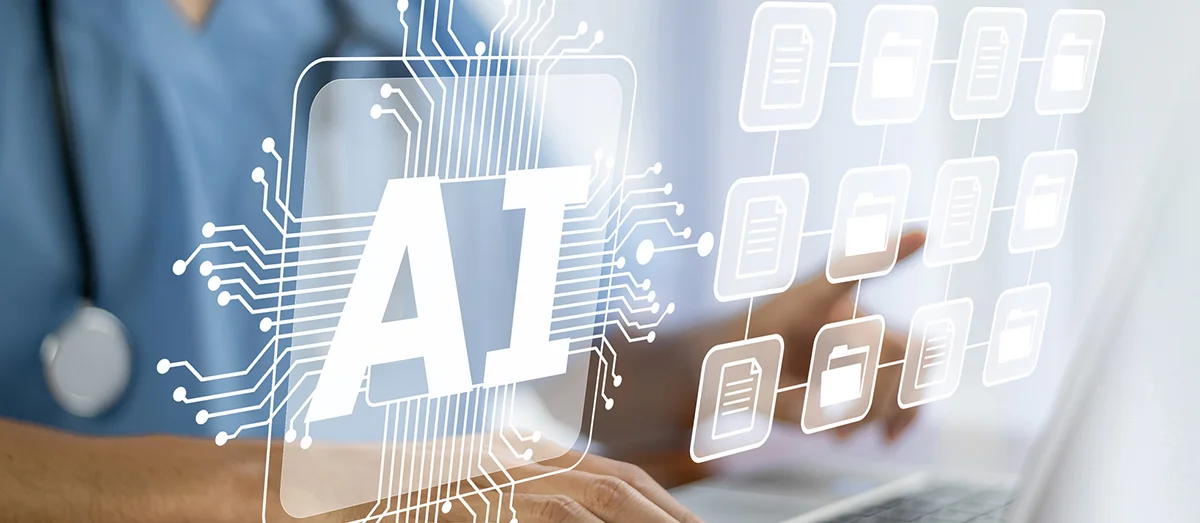Medical billing is one of the most error-prone and labor-intensive components of the healthcare revenue cycle. Every day, billing teams interpret clinical data, apply correct codes, verify patient coverage, and manage back-and-forth communication with payers, all while keeping up with changing regulations and documentation standards.
Even small billing mistakes can trigger denials or underpayments, stretching reimbursement timelines and damaging cash flow. Healthcare organizations are turning to artificial intelligence (AI) to address these issues, including Generative AI and Agentic AI. Generative AI produces clear documentation, appeal letters, and payer-ready justifications. Agentic AI coordinates eligibility checks, coding validation, and status follow-ups across systems so work continues without stalls. By automating repeatable tasks and improving billing accuracy, AI supports faster, cleaner claims and reduces the burden on revenue cycle teams.
This guide introduces the basics of medical billing automation, how AI tools are applied, and what healthcare leaders should consider when exploring these solutions, including where Generative AI and Agentic AI deliver the most value.
The Need for Smarter Medical Billing
Billing processes often span multiple systems, departments, and data sources. Manual workflows introduce delays, create inconsistencies, and require constant oversight. In a typical day, billing teams may:
- Extract data from electronic health records
- Translate clinical documentation into CPT, HCPCS, and ICD codes
- Validate patient eligibility and authorizations
- Submit claims and monitor payer responses
- Respond to denials and prepare appeals
This complexity makes billing a prime candidate for automation. AI-powered tools can handle large volumes of repetitive work, monitor for errors, and support compliance without slowing down operations.
Using AI for Medical Billing Accuracy and Efficiency
AI is especially well-suited to pattern recognition, data validation, and decision support. In medical billing, this means faster processes and fewer errors from start to finish. The following capabilities show how AI for medical billing works in practice.
Clinical Documentation Review
NLP extracts diagnoses, procedures, and context from clinical notes and turns them into structured billing facts. Generative AI produces concise rationales that tie documentation to medical necessity, giving coders and auditors instant clarity. When details are missing, Agentic AI opens the right task, assigns it to the right person, and routes the chart to the appropriate queue.
Coding Guidance and Validation
Models trained on payer edits, historical outcomes and local policies suggest accurate CPT, HCPCS, and ICD codes with confidence scores. Generative AI explains the suggestion in plain language, which speeds coder review and sign-off. If conflicts appear, Agentic AI attaches supporting evidence from the record, flags the issue, and advances the item to the proper human member of the team for escalation.
Eligibility and Pre-Authorization
Coverage checks shift from manual lookups to real-time verification of effective dates, deductibles, and co-pays. Generative AI assembles clinical summaries and attachments that fit payer templates for prior authorization. Agentic AI files requests, tracks statuses, and escalates before cutoffs, keeping schedules on track.
Claims Monitoring and Denial Analysis
After submission, classifiers group denials by root cause and surface trends that need upstream fixes. Generative AI drafts corrected claims and appeal letters aligned with policy language and clinical justification. Agentic AI compiles the packet, selects the submission channel, follows the claim through resolution, and closes the loop with audit-ready logs and learnings for the next cycle.
Benefits of Medical Billing Automation
Healthcare organizations that adopt automated medical billing solutions report improvements in speed, accuracy, and financial outcomes. Some of the top benefits include:
Fewer Denials and Rework
AI reduces manual input errors, improves code selection, and verifies documentation before claims go out. This lowers the chance of rejections and cuts down the time spent fixing preventable mistakes.
Faster Revenue Cycle
Automation shortens the time between service and reimbursement by accelerating eligibility checks, coding, and claims submission. Billing teams can process more claims in less time without increasing headcount.
Improved Staff Productivity
Automation takes over repetitive, rule-based tasks. This allows billing staff to focus on exceptions, patient support, and higher-value work. It also reduces burnout and training requirements for complex standards and systems.
Better Compliance and Audit Readiness
AI tools can be configured to follow payer-specific and regulatory rules, maintaining up-to-date compliance across workflows. Detailed audit trails make it easier to demonstrate adherence during reviews or inspections.
Why Medical Billing Needs Automation Now
Medical billing has grown more difficult in recent years as payer policies become more dynamic, coding standards evolve, and staffing pressures increase. Even well-run billing departments struggle to keep up with rising claim volumes and payer complexity.
At the same time, revenue cycle performance has a direct impact on the financial health of healthcare organizations. Delays, denials, and errors stretch cash flow and divert resources from patient care and strategic initiatives.
AI-powered medical billing automation brings needed stability and scalability to a system under strain. Automating documentation review, coding, and claims processing helps organizations close revenue gaps and ensure billing teams remain focused on higher-impact tasks.
Accelerate Medical Claim Processing
AI improves billing accuracy, speeds up reimbursement, and simplifies the revenue cycle from end to end. When built on a unified platform like Nividous, medical billing automation can scale across departments and integrate with existing systems.
Key Considerations When Adopting AI for Medical Billing
AI adoption in billing is not one-size-fits-all. Healthcare leaders should evaluate potential solutions based on system compatibility, data quality, and real-world performance. Some of the most important considerations include:
Workflow Integration
The best automation solutions integrate with your existing EHR, practice management, and billing systems. They should enhance current processes without requiring a full rebuild or migration.
Transparency and Auditability
AI tools should provide explainable outputs, including why a certain code was recommended or why a claim was flagged. This transparency builds trust with users and supports documentation requirements.
Data Security and Privacy
Any medical billing automation solution must align with HIPAA standards and support secure access controls. Systems should include encryption, role-based permissions, and activity logs to safeguard patient data.
Pilot Programs and Phased Rollouts
Launching a small pilot use case helps teams understand the value of AI without overwhelming staff or processes. Starting with a high-volume pain point like eligibility checks or denial management builds momentum for broader automation efforts.
Change Management
Billing teams need training and support when adopting new tools. Clear communication, stakeholder involvement, and phased rollouts help ensure adoption success.
Vendor Support and Customization
Choose a partner that offers strong implementation support and can customize workflows to fit your organization’s needs. Prebuilt templates help accelerate deployment, while flexible configurations accommodate payer-specific or specialty-specific requirements.
What’s Next for Automated Medical Billing?
As AI becomes more accessible and reliable, its role in medical billing will continue to expand. Future use cases may include:
- Predicting denial risk at the point of care
- Automatically generating appeals for specific denial codes
- Auditing billing behavior for provider performance tracking
- Personalizing financial communication with patients
- Estimating patient responsibility and sharing real-time cost breakdowns
- Forecasting reimbursement trends based on payer behaviors
The most advanced healthcare systems are already integrating automated medical billing with broader revenue cycle tools. These unified platforms connect coding, documentation, financial analytics, and compliance, giving organizations a complete picture of billing performance.
Build a Smarter Billing System With Nividous
Leading healthcare organizations use Nividous to automate billing workflows, reduce rework, and accelerate reimbursements.
The Nividous platform includes:
- Robotic process automation to manage repetitive billing tasks
- AI for document review, coding accuracy, and payer communication
- Low-code process automation to orchestrate end-to-end billing workflows
Whether your priority is denial reduction, audit readiness, or faster claims processing, we provide flexible solutions tailored to your revenue cycle goals.
With Nividous, you can:
- Cut task handling time by up to 70%
- Lower administrative costs by up to 40%
- Improve claims accuracy and staff efficiency
- Gain full visibility into billing operations
Ready to Streamline Medical Billing Automation at Scale?
Book a personalized demo of the Nividous intelligent automation platform and get a clear plan for your next steps.





